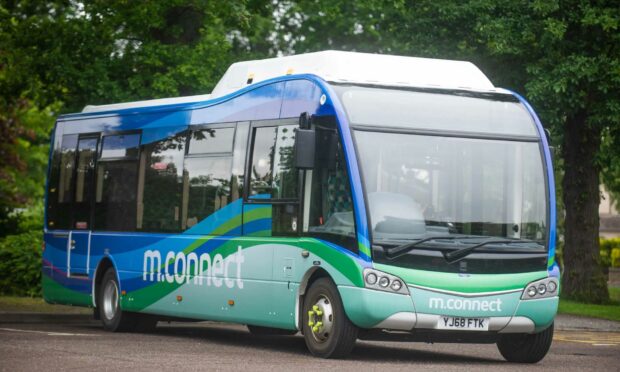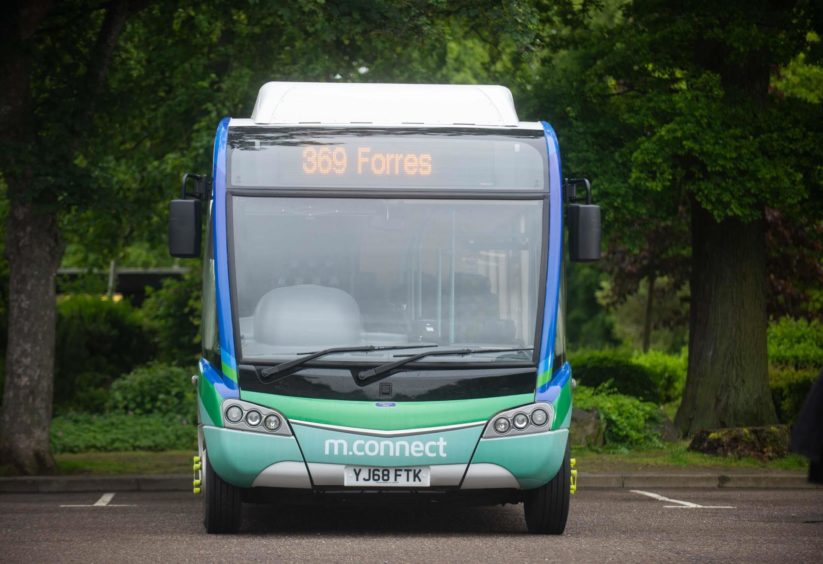Moray Council have unveiled their £4.3 million project for a on-demand electric bus service to plug gaps in rural transport routes and benefit the region’s economy.
Bus Revolution is part of the £100-million pound Moray Growth Deal that is backed by both UK and Scottish governments.
The project includes the development of an “Uber-like” app to enable customers to track the position of buses and book journeys within a reasonable response time.
There will be investment into a high quality green fleet to ensure people are able to travel across the region -Monday to Saturday from 4am to midnight and from 7am until 10pm on Sundays.
It is proposed that all the buses will have on board WiFi and charging facilities.
Councillors will consider a detailed report next Thursday that seeks to agree £300,000 towards the project that will receive £4m from the Scottish Government.
Now, Moray Council are using this project to build on their Dial M door to door bus services and mconnect electric bus that travels between Aberlour and Forres through rural villages.
Rhona Gunn, depute chief executive of the local authority, said: “Longer operating hours (including peak hours) will increase mobility and access to work, education and recreation for all residents regardless of economic status, geography, age or ability.
“This will also contribute to reducing social isolation.
“The recent community engagement online survey identified public transport as one of the key areas people would most like to see improved in Moray, and this statistic was reinforced by students at the local college, who took part in workshops relating to their post-college plans, where issues with rural transport were cited as causing difficulties in job accessibility and studying locally.”
Mrs Gunn also said the project was “not to compete” with scheduled services but to fill the gaps and encourage more people to use public transport to benefit the environment.
She added: “By increasing the number of passengers on local buses the number of journeys by private vehicle will reduce.
“This will result in savings in carbon emissions as the new fleet will be non-polluting.”

